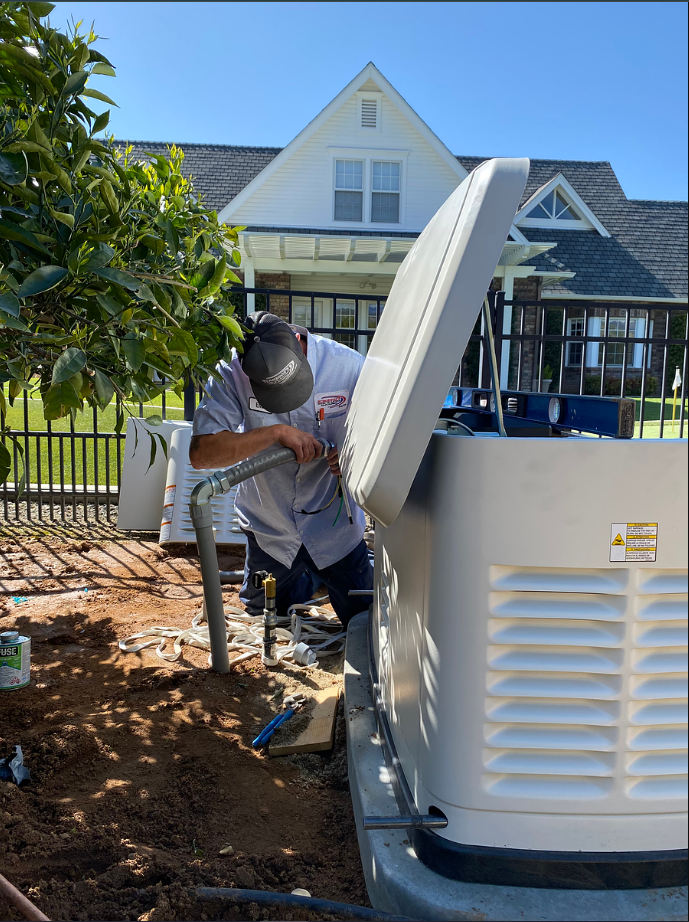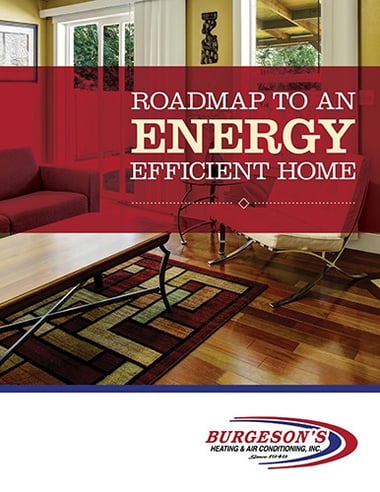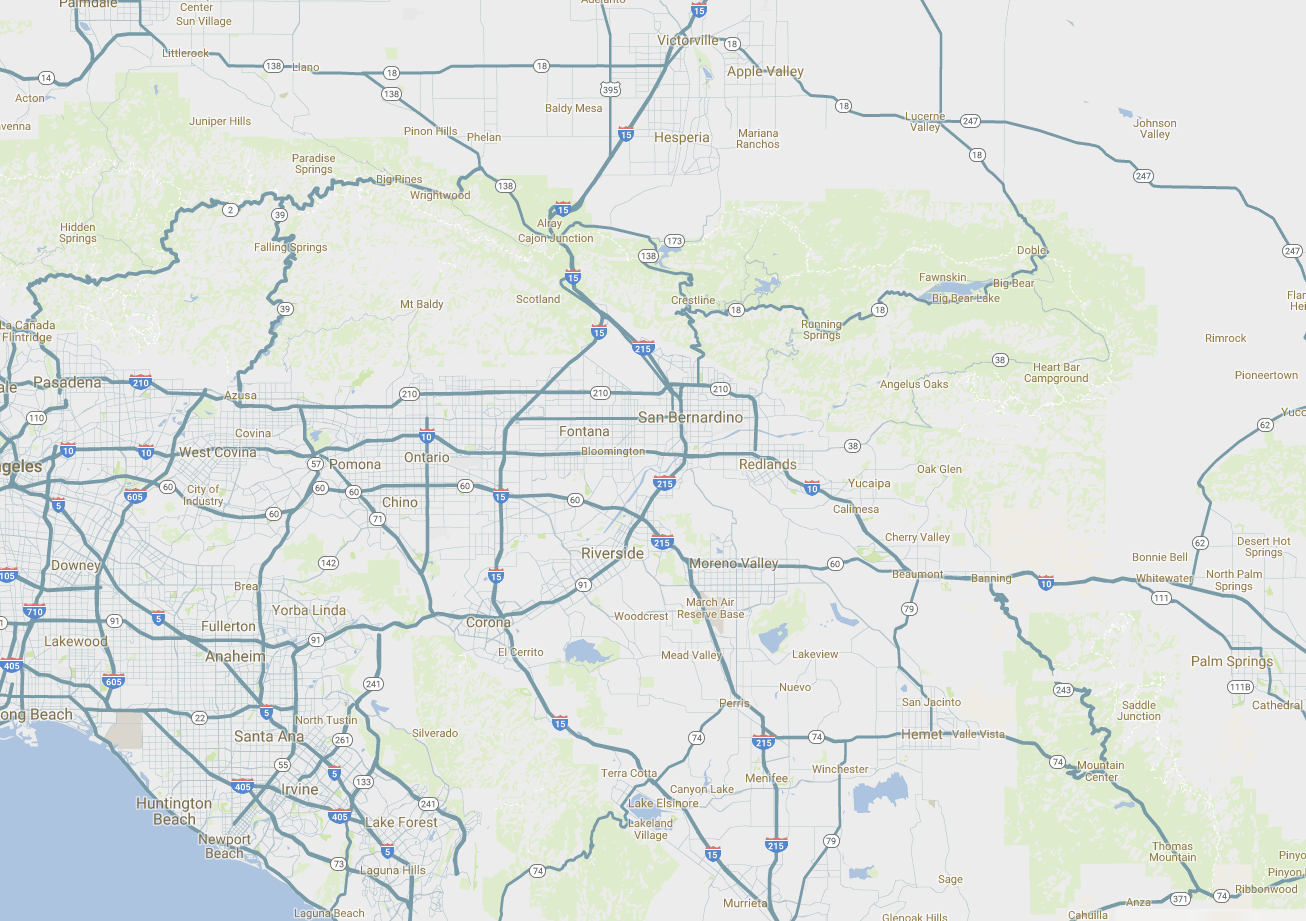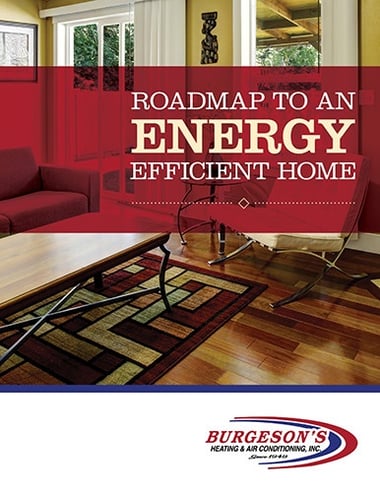How Much Does it Cost to Install a Whole House Generator in Southern California?
The cost to install a whole-house generator can range anywhere from $10,000 to $23,000+.
We know that’s a really big range, and we know you are probably looking for a more specific price. However, without visiting your home and considering your backup power needs, it’s impossible for us to give you a specific cost estimate here.
That said, we can tell you that the cost to install a whole house generator will depend on the following factors:
- The size of the generator
- The fuel type of the generator
- The location of the generator
- Electrical modifications or upgrades
- The contractor you choose for the installation
To give you a better idea of what will determine the cost of your whole-house generator, we’ll explain each of these factors in more detail below.
The Size of the Generator
Generators are sized in kilowatts (kW), which measures how powerful a generator is. The higher the kW rating of a generator, the more power it can supply, and the more expensive it will be. Most residential generators needed in San Bernardino & Riverside Counties range from 10 to 26 kW in size.
An electrician will help you size your generator based on how many appliances you want the generator to power at once.
For each appliance you want to be powered by the generator, the electrician will determine:
- The running wattage of the appliance is how much power the appliance will consume during normal operation.
- The starting kVA (kilovolt-amperes) of the appliance. Calculating the starting kVA will tell the electrician how much electricity an appliance draws during startup.
The electrician will then use this data to determine if a particular generator can handle the extra electrical surge produced by an appliance during startup.
Average Generator Cost by kW Capacity in San Bernardino & Riverside Counties
|
Generator Size (kW) |
Average Cost (Generator Only) |
What It Can Power |
|
10 kW |
$10,000 - $13,000 |
Basic essentials (lights, fridge, outlets) |
|
14 kW |
$13,000 - $15,000 |
Essentials + a small AC unit or sump pump |
|
22 kW |
$15,000 - $17,000 |
Most home appliances + HVAC system |
|
24 kW |
$19,000 - $21,000 |
The entire house, including large AC units |
Note: Installation costs add an additional $2,000-$10,000 depending on complexity.
Choosing the right generator size ensures you’ll have the power you need without overloading the system or paying for unnecessary capacity.
The Fuel Type of the Generator
Whole-house generators require fuel to supply power to your home’s appliances. The most common generator fuel types are:
- Diesel: Compared to other gas-powered generators, diesel generators are the most expensive to install because they are built with large and heavy components, which increases equipment costs and installation labor. However, diesel (and its environmentally-friendly cousin, bio-diesel) units are less expensive to operate and maintain compared to generators powered by other non-renewable fuel types.
- Natural gas: Natural gas generators are less expensive to install, but they have a higher operational cost compared to diesel generators. Natural gas generators receive their fuel from the local utility grid, which means you don’t have to manually add fuel to the generator.
- Gasoline: Gasoline generators have a relatively low installation cost compared to natural gas or diesel units. However, because gasoline is more expensive than other non-renewable fuels, the cost to operate a gasoline-powered generator will be greater. Gasoline is also highly flammable, which can make it difficult to store safely on-site.
- Propane: When it comes to choosing a fuel type for your generator, you’ll need to consult with a professional. A professional can help you weigh the pros and cons of each fuel type, and help you strike a balance between upfront equipment cost and long-term energy savings.
The Location of the Generator
Ideally, your whole-house generator should be relatively close to the electric meter. Or, if you choose a natural gas generator, it should ideally be situated between the electric and gas meters. However, depending on the construction of your home and local safety requirements, your generator may need to be installed further away from the meters.
The further away the generator is from the electric or gas meters, the more expensive the installation will be because of increased labor time running wires or lines from the generator to the meters. Additionally, whole-house generators need a concrete or gravel-filled foundation to support them, which also adds to the overall installation cost.
The contractor you hire can help you choose an ideal location (that is also compliant with local codes) for your generator.
Electrical Modifications or Upgrades
In order to install the whole-house generator, the electrician will likely need to make modifications or upgrades to your electrical system, which will raise the overall cost to install a whole house generator.
Examples of electrical modifications or upgrades include:
- Upgrading your electrical panel to support the new generator
- Replacing faulty or old wiring, to make sure it is compliant with local codes and compatible with the new generator
- Installing or upgrading a transfer switch, which is used to switch power to the backup generator in the event of power failure
After an initial inspection and assessment of your home’s electrical system, the contractor you hire should let you know beforehand what electrical modifications will be required to install the generator. That way, there will not be any surprises when you get the final bill.
The Contractor You Choose for the Installation
As a general rule of thumb, higher-quality contractors charge more for their installation services. That said, these contractors do thorough installation work that will ensure your generator runs smoothly and performs properly when you need it to.
It may be tempting to hire a contractor who offers lower whole house generator installation costs, but beware that some contractors who offer lower prices do subpar work and cut corners during the installation. The last thing you want to do is invest in a whole-house generator, only to find out later (at the most inconvenient time) that your generator won’t work because it wasn’t installed correctly.
Our recommendation? Invest in a higher-quality contractor, even if they charge more, to get the peace of mind that your generator will work when you need it to.
To verify the overall quality of a contractor, ask yourself the following questions:
- Is the contractor licensed and insured?
- Will the contractor pull the necessary permits to install the generator?
- Does the contractor provide upfront pricing (in writing) before any work begins?
- Does the contractor offer any guarantees or warranties on their installation work?
- Does the contractor have a large selection of positive customer testimonials?
- Does the contractor offer on-call technicians 7 days per week to come to your aid in an emergency?
- Does your contractor have the longevity in the community to ensure they will be available to their customers today and well into the future?
If you answered “yes” to the questions above, the contractor will likely do high-quality installation work, and you’ll have a good experience working with them.
Want a Quote to Install a Whole-House Generator?
One of our experienced electricians will help you find the right whole-house generator for your power needs and budget. When you hire Burgeson’s to determine the right cost to install a whole house generator, you can count on honest generator recommendations, upfront pricing, and exceptional installation work.












